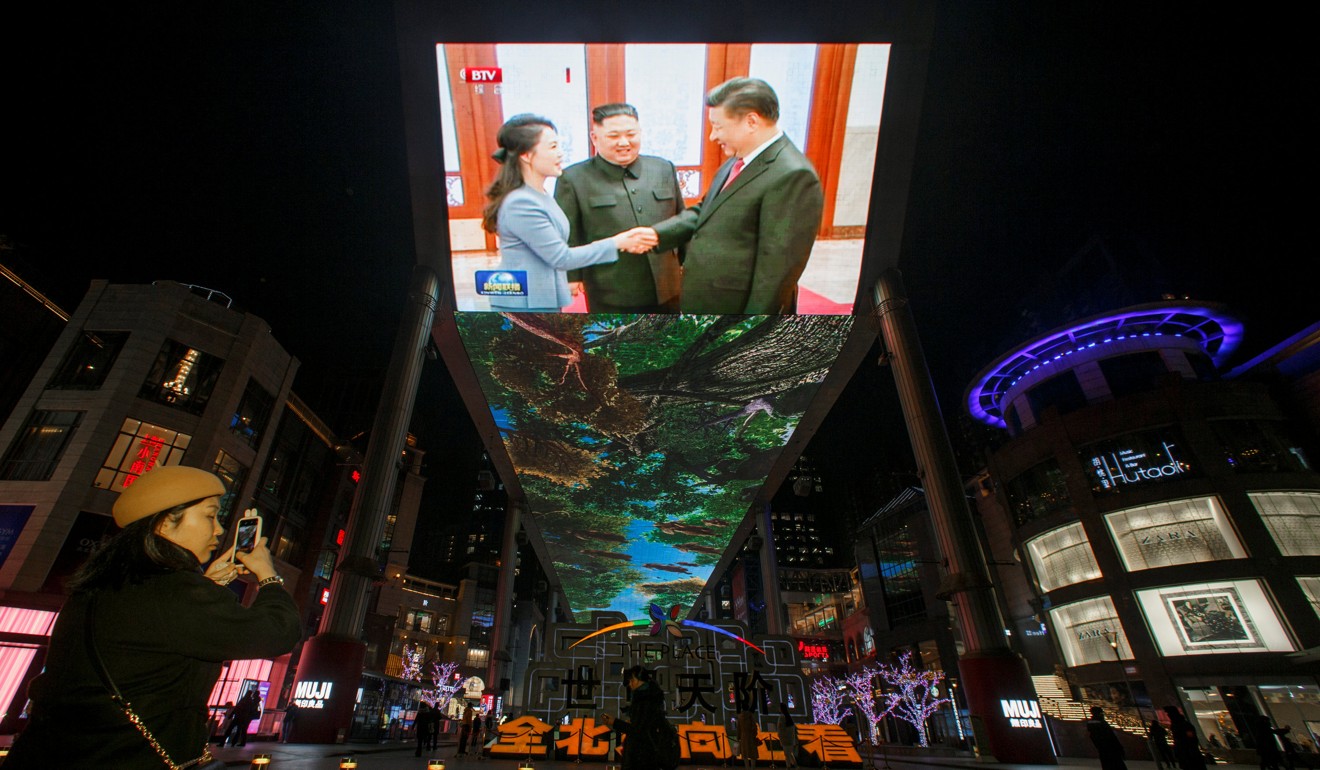
Kim Jong-un in Beijing: is North Korea a bargaining chip in US-China trade talks?
- Lee Seong-hyon says despite its denials, China is not above mixing politics with economics to gain an upper hand in international relations. Neither is America under Trump. It’s safe to say the North Korea nuclear issue is a consideration
In a gentlemen’s world, one does not mix apples and oranges. (Actually, we learned that early on, in kindergarten.) In a gentleman’s world, one also does not mix politics with trade; otherwise, the global free trade structure will crumble. Both Washington and Beijing claim they are gentlemen, in which case they should treat the North Korean nuclear issue and the US-China trade war as separate issues. But the idea that China may use North Korea as leverage in the trade war keeps popping up.
The probing question should be: are we living in a gentlemen’s world now, especially amid the increasing rivalry, competition and distrust between China and the United States?
Both Washington and Beijing feign political correctness.
When Mike Pompeo was asked, on January 7, whether the ongoing trade war was undermining progress on North Korea’s denuclearisation, the US secretary of state insisted, “The Chinese have been very clear to us that these are separate issues”, labelling China “a good partner” in Pyongyang’s nuclear disarmament.
Can Kim Jong-un become North Korea’s Deng Xiaoping?
Some analysts in Washington also agree. They believe the trade war in itself is so complex and intricate that there is no room for the North Korean issue to be involved, and point out that the US government also treats it as a separate issue.
But others think it makes sense for China to use “Kim’s visit” as leverage with Washington. With Kim having visited four times in a mere 10 months, Beijing is confident that Washington cannot solve the North Korean issue without China’s help. China is seen as the country that wields the most clout over Pyongyang; more than 90 per cent of North Korean trade depends on China.
For the North Koreans, it also makes sense for Kim to use his visit to China to hedge against the possibility of slow progress with the US, by making sure that he maintains good guanxi (relationship) with President Xi.
When the THAAD dispute erupted between China and South Korea, there was also a strong argument in South Korea that China would not retaliate economically because they were separate issues. The South Korean minister in charge of the nation’s economy advocated this view, rationalising that to retaliate would also hurt the Chinese economy, given the interdependent nature of trade.
Five places that have paid the price for displeasing China

How the United States got lost in Chinese translation
Why would China trumpet Kim's visit, then have Washington play a guessing game about his activities? Even if North Korea was not part of the US-China trade war calculus, it was a psychological factor embedded in the larger geopolitical power game between the two. China is quite skilled at psychological warfare and can unleash it when it wants.
Business and pleasure shouldn’t be mixed in the world of gentlemen. But they also say: “It was a pleasure to do business with you.”
Lee Seong-hyon, PhD, is director of the Centre for Chinese Studies at the Sejong Institute in Seoul

